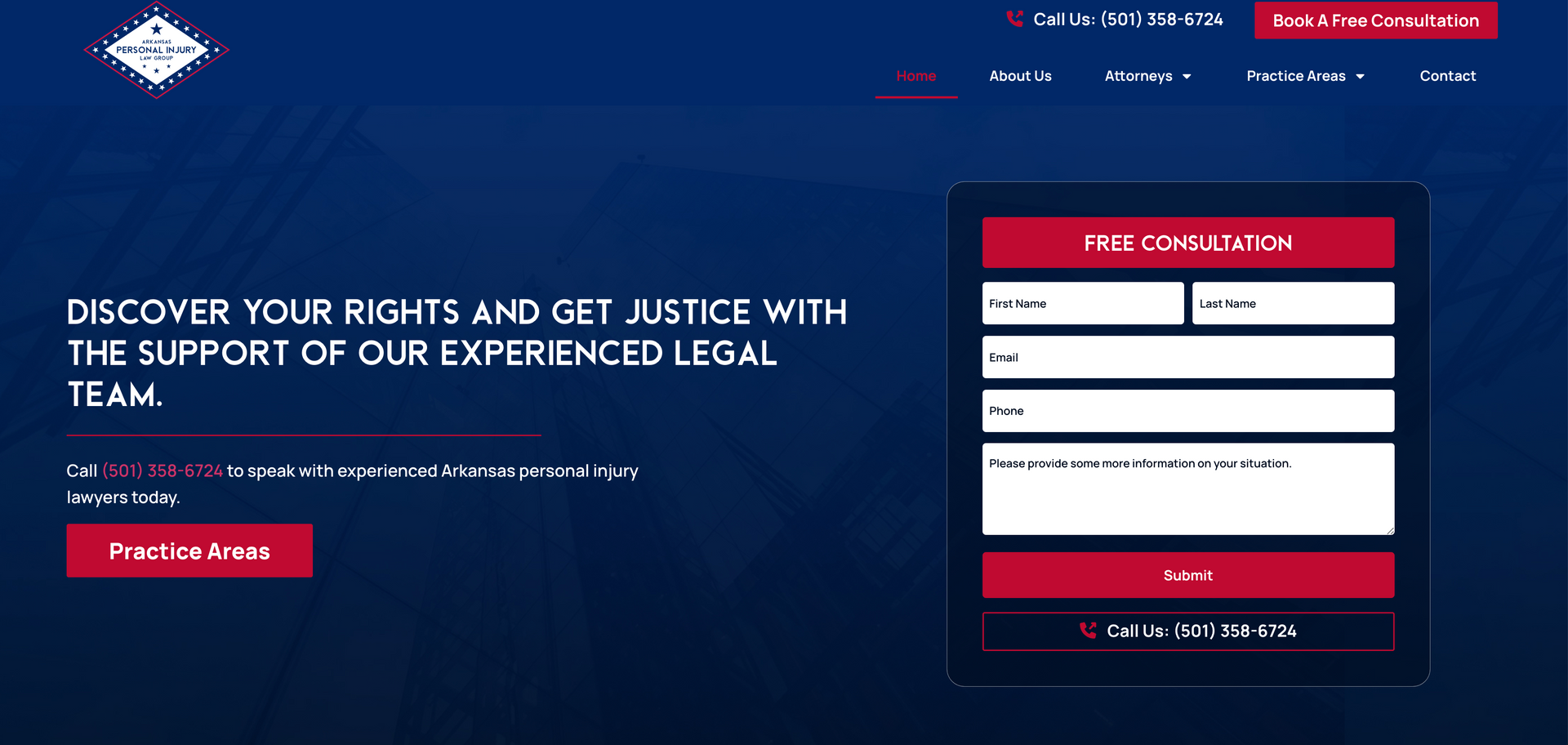Digital Marketing For Lawyers
DIGITAL MARKETING FOR LAWYERS
In today's digital age, lawyers and law firms must navigate the complex world of online marketing to stay competitive. Digital marketing offers a plethora of opportunities for legal professionals to enhance their online presence, attract new clients, and establish their authority in the legal field. This article delves into the essential aspects of digital marketing for lawyers, drawing inspiration from leading industry sources.
What is Digital Marketing for Lawyers?
Digital marketing for lawyers refers to the strategies and practices employed by legal professionals to promote their services online. It includes utilizing tools like search engine optimization (SEO), pay-per-click (PPC) advertising, social media marketing, content marketing, and email campaigns. These methods enhance the online visibility of lawyers or law firms, attract potential clients, and establish their brand in the digital space. The goal is to effectively reach and engage with a targeted audience, converting them into clients while building a strong, reputable online presence.
We’ll discuss each of these strategies in further detail below.
Setting Digital Marketing Goals:
It's like setting a destination before a journey. Law firms need to decide what they want from their online efforts – maybe more clients, a better reputation, or being the top result on Google. This helps in making a roadmap of how to get there.
What are your marketing goals?
These could be specific targets like a 20% increase in website traffic, doubling the number of client inquiries, or ranking higher for certain legal terms in search results. It's about knowing what success looks like.
Who is Your Audience?
Think of who would need your legal services. Are they businesses or individuals? What legal problems do they have? Knowing your audience helps in crafting messages that speak directly to their needs.
The Importance of SEO in Digital Marketing for Lawyers?
SEO is like the signboard that makes your law firm visible on the internet highway. It involves using the right keywords, having a well-structured website, and creating content that answers your potential clients' questions.
Google’s First Page:
This is prime real estate in the digital world. Ads appear first, followed by local business listings (like law firms in a specific area), and then organic search results. Being here means more people will see and click on your law firm's website.
How do Google SEO ranking work for lawyers?
Google rankings for lawyers work by assessing websites against factors such as relevance to legal queries, the quality of content, user experience, and local SEO factors. If a law firm's website has relevant, high-quality content and a good user experience (like fast loading times and mobile-friendly design), it is more likely to rank higher. Additionally, local SEO plays a crucial role for lawyers, as potential clients often search for legal services within their geographic area.
70%
Local SEO can increase website traffic by 70% for law firms.
(Source: Search Engine Journal)
Ready to Grow Your Law Firm
Marketing Services?
Click the button below for a free proposal
A Lawyer's Guide to Effective Digital Marketing
In today's digital era, law firms face a unique challenge: establishing a strong online presence. This guide delves into the realm of digital marketing, offering insights and strategies tailored for legal professionals.
SEO: The Cornerstone of Online Visibility
Search Engine Optimization (SEO) is crucial for lawyers. Optimizing your website and content to rank higher in search results increases visibility and attracts potential clients.
PPC Advertising: Targeted Visibility
Pay-Per-Click (PPC) advertising is an effective way to gain immediate exposure. By targeting specific demographics or regions, law firms can efficiently reach their intended audience.
Social Media Marketing: Building Connections
Social media platforms are vital tools for engaging with clients and building a brand. Sharing relevant content and interacting with followers can significantly enhance a law firm's online presence.
Content Marketing: Establishing Authority
Quality, informative content is key to establishing a law firm as a thought leader. Regular blog posts, articles, and updates can drive traffic and improve SEO.
50%
Over 50% of legal consumers utilize social media to research lawyers and law firms before making a decision.
(Source: ABA Legal Technology Survey)
53%
Mobile-friendly websites are 53% more likely to attract potential clients.
(Source: Google)
Digital Marketing Tips for Lawyers
1- SEO Optimization:
Invest time in researching and using keywords that potential clients are likely to use when searching for legal services. This includes both general legal terms and those specific to your practice area.
2- Active Social Media Engagement:
Use social media to establish a presence and engage with your audience. Share updates, legal insights, and interact with users' comments and messages.
3- Quality Content Creation:
Regularly produce and share valuable content such as legal guides, blog posts, and articles. This establishes your expertise and helps with SEO.
4- Local SEO Enhancement:
For lawyers, local visibility is key. Optimize your online listings, such as Google My Business, and encourage satisfied clients to leave reviews.
5- Targeted PPC Campaigns:
Use pay-per-click advertising to appear in front of potential clients who are actively searching for legal services you offer.
6- Analytics Monitoring:
Keep an eye on your website and social media analytics to understand what's working and what needs improvement.
7- Professional and Updated Website:
It's crucial for law firms to have a professional, well-designed website that is regularly updated. This should reflect the firm's expertise and services, and be easy for potential clients to navigate and find relevant information. An outdated or poorly designed website can deter potential clients.
8- Effective Email Marketing:
Build a mailing list and send out regular newsletters or updates. Personalize your emails to maintain a connection with your clients and prospects.
Work with a Legal Marketing Company to Manage Your Digital Marketing Strategies
Collaborating with Scale and Sword Advertising, a specialized marketing firm for law firms, can elevate your digital marketing efforts. They tailor strategies to each law firm’s unique needs, offering services like SEO, website design, and PPC advertising. Their expertise in the legal sector ensures a comprehensive and effective online presence, allowing law firms to concentrate on their practice while Scale and Sword handles their digital marketing needs.
For more information, visit
Scale and Sword Advertising.
Let’s talk about your project
Fill in the form or call to set up a meeting at 302 285 9806






